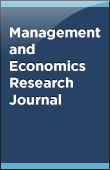


In knowledge economy there is a shift from industrial work to innovation work. This study examines the influence of soft skills and emotional demands–abilities fit on innovative work behavior among Masters of Business Administration (MBA) students. In a cross-sectional survey, we purposely selected 130 MBA students working in various types of organizations. Data were collected by using structured psychological scales. Detailed data analysis was carried out using statistical techniques: Pearson moment correlation coefficient and multiple regression analysis. Both soft skills and emotional demands–abilities fit jointly accounted for 38.7% of the total variation in innovative work behavior. Soft skills and emotional demands–abilities fit showed independent statistically significant prediction on innovative work behavior. The findings have implication for human capital soft skills as essential in knowledge economy. Furthermore, fit perceptions expect that emotional demands of work match the skills and abilities of the human capital. Recommendations were made in line with management and sustainability development goals.
Read Article